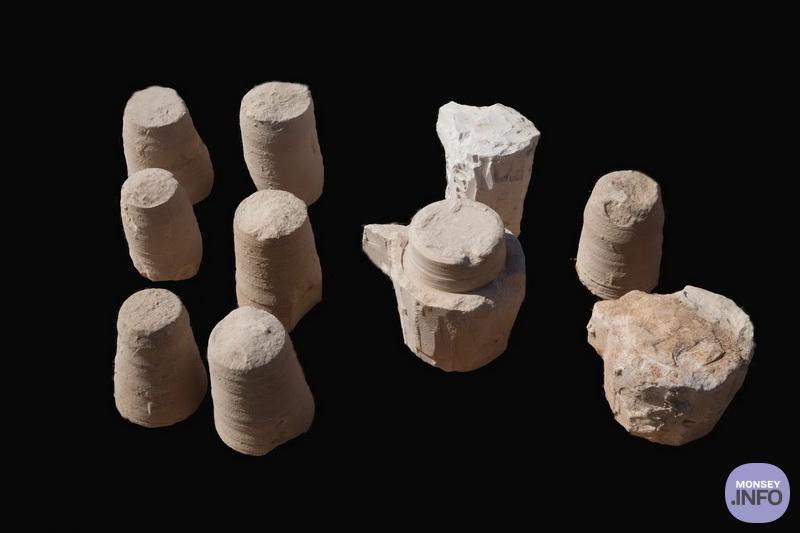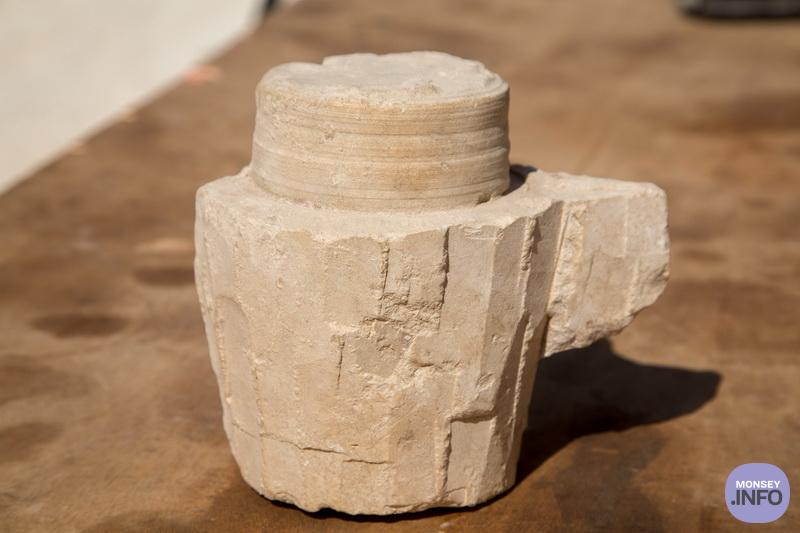
Chalkstone Vessel Workshop Dating to the Second Temple Period Discovered in Israel
Ritual purity has been an integral part of Jewish life since the Second Temple Period, more than 2000 years ago.
Fascinating evidence regarding the importance the Jewish population attributed to ritual purity was uncovered in 2017 in the Lower Galilee village of Reineh, situated between Nazareth and Kafr Kanna.
A chalkstone vessel workshop, dating to the Second Temple period (first century BCE–first century CE) was discovered at Reineh. The ancient site was revealed when chalk cores surfaced during development work by the Reineh Local Council, prior to the construction of a sports hall. The archaeological excavation revealed a quarry with thousands of chalk cores, as well as damaged bowls and cups at different stages of production, all of which were waste debris from the workshop.
A small rock-carved tunnel, cut by stonemasons, from which the raw material for producing the vessels was extracted, was uncovered at the site. Thousands of limestone cores – the waste from the vessels – as well as many broken vessels discarded during the process, were found at the site.
Why specifically stone vessels? Professor Yonatan Adler, senior lecturer at Ariel University, who conducted the excavation on behalf of the Israel Antiquities Authority, explains: “The discovery confirms our understanding regarding the great importance that the Jews of Galilee attached to maintaining the purity laws, at the time when the Temple functioned in Jerusalem. The chalkstone vessels are clearly characteristic of the Jewish population, who considered them insusceptible to ritual impurity.” According to Adler, “Unlike pottery vessels that had to be broken and discarded when exposed to impurity, stone vessels remained pure. Therefore, first century CE Jewish families would keep some of these special stone vessels in their homes. While chalkstone vessels are known from many Jewish sites in Galilee, finding the place where they were manufactured in the Galilee is quite exceptional.”
It is well known that the maintenance of ritual purity was very common among the Jews in Jerusalem and Judea when the Temple was functioning in Jerusalem, at least until the end of the Bar Kochba Revolt in 135 CE.
“Evidence for the importance attached to observing the purity laws is discussed extensively in the Mishnah and Talmud, and it also appears in the New Testament,” says Israel Antiquities Authority archaeologist Yardenna Alexandre. “In the Gospel according to John, it is recounted that Jesus and his mother Mary, who lived in Nazareth, were invited to a Jewish wedding in the nearby village of ‘Cana of Galilee’, where wine was served. When the wine ran out, Jesus instructed to fill six stone jars with water ‘according to the Jewish rites of purification’, and the water was turned into wine. Thus, it is recorded, Jesus’ special abilities were first noticed.”
According to Alexandre, “Two chalkstone workshops were found near Reineh, very close to Kafr Kanna, the place identified by many as ‘Cana of Galilee’ of the Christian tradition. It is very likely that the stone vessels in the water-to-wine miracle were manufactured in the Reineh workshop.”













